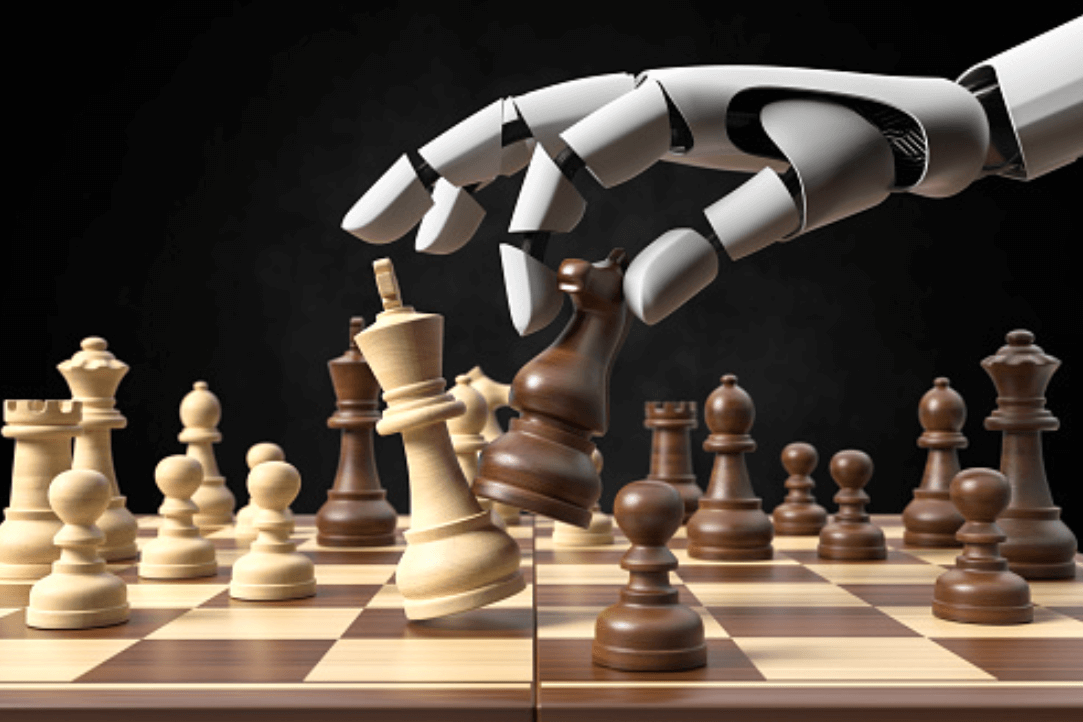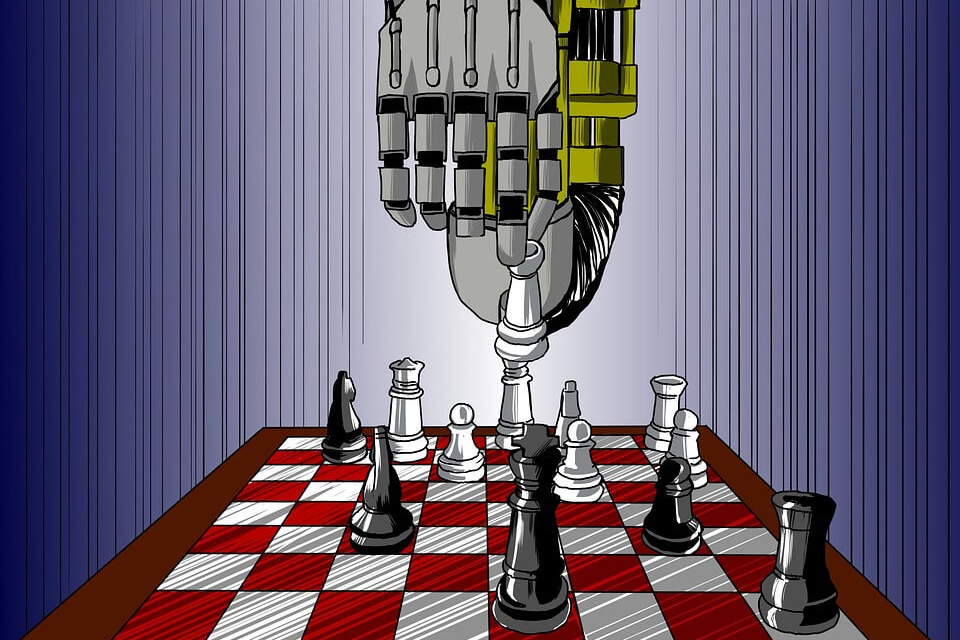No products in the cart.
Chess News, Events & Blogs
Revolutionizing Chess: The Surprising Impact of AI and Computers
The evolution of chess has been transformed by the rise of AI and computers. In this article, we explore how chess has been revolutionized by technology, from the first chess-playing computers to the development of powerful chess engines like Deep Blue and AlphaZero. Discover the impact of AI on chess strategy, training, and competitive play, and explore how online chess platforms have made the game more accessible and engaging to players and fans alike. Join us as we dive into the fascinating world of AI-powered chess and explore how it has forever changed this timeless game.
Table of Contents
The Rise of AI-Powered Chess Engines
The game of chess has always been a subject of fascination for both enthusiasts and casual players. With the introduction of computers, the game of chess has evolved drastically. Today, artificial intelligence (AI) and machine learning have become integral components of chess-playing systems. AI-powered chess engines have revolutionized the game, making it more exciting and challenging than ever before.
The first notable AI-powered chess engine was Deep Blue, developed by IBM in the 1990s. Deep Blue defeated world champion Garry Kasparov in a chess competition in 1997, marking a significant milestone in the history of AI and chess. Deep Blue’s success inspired researchers and developers to create more advanced and powerful chess engines. One of the most impressive AI-powered of recent times is AlphaZero, developed by Google’s DeepMind in 2017. AlphaZero uses deep neural networks and reinforcement learning to teach itself how to play chess, without any human intervention. In a groundbreaking demonstration, AlphaZero defeated the world’s strongest chess engine, Stockfish, in a 100-game match, winning 28 games and drawing the rest. AlphaZero’s success is a testament to the power of AI and machine learning in improving chess engines’ performance. It showed that AI-powered could surpass traditional engines by learning from scratch, rather than relying on pre-programmed knowledge and heuristics. Apart from AlphaZero, there are several other AI-powered chess engines available today, including Stockfish, Komodo, and Houdini. These engines use a combination of algorithms and machine learning techniques to analyze chess positions and suggest the best moves.
Impact on Competitive Play: Tournaments and Online Chess Platforms
The impact of computers and AI on the game of chess has been significant, particularly when it comes to competitive play. Tournaments and online chess platforms have seen a considerable shift in the way chess is played and experienced by both players and spectators alike.
One of the most notable changes in competitive chess is the use of computer programs for analysis and preparation. Professional chess players now have access to powerful chess engines that can analyze positions with incredible speed and accuracy. Online chess platforms such as Chess.com, Liches, Chess 24 have also had a significant impact on competitive play. These platforms allow players to compete against opponents from all over the world, anytime and anywhere. Players can also access a wide range of resources, such as chess puzzles, training materials, and real-time analysis, to improve their skills and strategies. Online chess platforms have also made it easier for organizers to host tournaments and events. Chess tournaments can now be held entirely online, with players from all over the world competing against each other in real time. This has made it possible for more people to participate in chess tournaments, regardless of their geographic location. Furthermore, fans can now watch live games, analysis, and commentary from anywhere in the world, making chess more engaging and interactive than ever before.
The Future of Chess: Human vs. AI and the Role of Technology
The future of chess is an exciting and rapidly evolving landscape, with the rise of AI and technology playing a significant role. One of the most significant changes is the shift towards human versus AI competition, as machines like Deep Blue and AlphaZero continue to demonstrate their superiority over human players. Despite these advancements, there is still much debate over the role of technology in the future of chess. Some argue that AI will eventually replace human players altogether, while others believe that there will always be a place for human intuition and creativity in the game.
The role of technology in chess education and training is also an exciting area of development. New tools and platforms are being developed to help players improve their skills and strategies, from AI-powered coaching programs to virtual training environments that simulate real-world gameplay. However, it is worth noting that the future of chess is not solely defined by technology. As with any sport or game, there will always be an element of human skill and intuition that cannot be replicated by machines. The challenge for players and enthusiasts alike will be to find the right balance between technological innovation and traditional gameplay. In conclusion, the future of chess is a fascinating and rapidly evolving landscape, with the rise of AI and technology playing a significant role. The development of new technologies, training tools, and playing experiences offer exciting possibilities for the future of this timeless game. As technology continues to evolve, we can expect to see even more innovative developments in the world of chess, making it an exciting time for players and enthusiasts alike.




